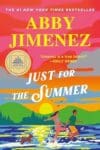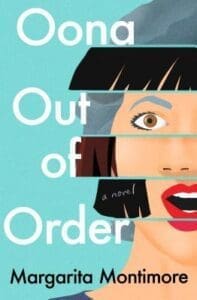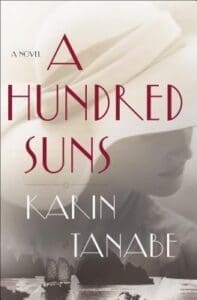The Summer Country by Lauren Willig – 480 pages
Book Blurb:
Emily Dawson has always been the poor cousin in a prosperous merchant clan—merely a vicar’s daughter, and a reform-minded vicar’s daughter, at that. Everyone knows that the family’s lucrative shipping business will go to her cousin, Adam, one day. But when her grandfather dies, Emily receives an unexpected inheritance: Peverills, a sugar plantation in Barbados—a plantation her grandfather never told anyone he owned.
When Emily accompanies her cousin and his new wife to Barbados, she finds Peverills a burnt-out shell, reduced to ruins in 1816, when a rising of enslaved people sent the island up in flames. Rumors swirl around the derelict plantation; people whisper of ghosts.
Why would her practical-minded grandfather leave her a property in ruins? Why are the neighboring plantation owners, the Davenants, so eager to acquire Peverills—so eager that they invite Emily and her cousins to stay with them indefinitely? Emily finds herself bewitched by the beauty of the island even as she’s drawn into the personalities and politics of forty years before: a tangled history of clandestine love, heartbreaking betrayal, and a bold bid for freedom.
My Review: 4 stars – Guest Review
The Summer Country is a lush, beautifully written, sweeping saga that takes place in 19th century Barbados. It spans over four decades, and alternates between two separate narratives and two sets of characters. One narrative is set in 1812 and the other takes place in 1834. The earlier timeline occurs prior to the emancipation of the slaves in colonial Barbados, and the second timeline takes place after the emancipation. The 1812 storyline deals with the hardships of British slavery in the colonial Caribbean, the life of an enslaved woman, and forbidden love. The 1834 storyline follows Emily, who travels from England to Barbados, due to inheriting a sugar plantation that was owned by her late grandfather. While in Barbados, Emily unravels secrets related to her roots in Barbados and her inheritance. The characters’ dual storylines illustrate pre- and post-abolitionist attitudes. Love, family intrigue, mystery, betrayal, and surprising secrets are themes throughout.
The author’s rich descriptions of Barbados are breathtaking, and totally immerse the reader into the exotic island setting and Victorian atmosphere. The characters, while not all likable, are complex, multidimensional, and well-developed. There are strong female characters in both storylines. The characters are so well-written, that the reader is able to get insight into exactly what is going on their minds.
This was a very long read. There was a great deal of description and detail throughout, and the plot was revealed slowly. I initially had difficulty getting into the book, mainly because there were two narratives with two different sets of characters. I had to work hard in order to keep the many characters straight in my mind and to learn who the characters were, their relationship to each other and to the storyline. I felt that the alternating timelines were confusing at the beginning of the book. I understood why the author couldn’t include a chart detailing the characters, since some of the relationships were supposed to remain a mystery. It was also difficult to keep track of some of the complex and intricate details of the plot, how the characters were connected, and how the two separate storylines were intertwined. I frequently needed to backtrack and re-read previous passages in order to refresh my memory. At about the halfway point in the book, when I felt comfortable knowing who was who, the story picked up considerably, and I became engrossed in the story. I connected with the story, the romance, and the characters in the 1834 narrative.
Overall, this was an extremely well researched piece of historical fiction, with great attention to detail and much narrative atmosphere. This was an ambitious undertaking for the author, as it took her a decade to write. This story dealt with a time in history and a setting that I was not familiar with, so I learned a lot about the racial and cultural divisions that existed in Barbados during that time period. My patience with the slower pacing of the narrative in the first half of the book definitely paid off. This was the first book I’ve read by Lauren Willig, and I felt it was a worthwhile read. Fans of historical fiction will be absorbed by this story.
Quotes I liked:
If she ever married, she wanted it to be someone who wanted her more than he needed her, someone who loved her because he was strong enough to appreciate her and not because he needed her strength.”
“I’d thought we lived in an age of reason, that man might make his own destiny. Is it all a snare? Do we create our own doom, or are we mere actors in a drama of someone else’s devising?”



















